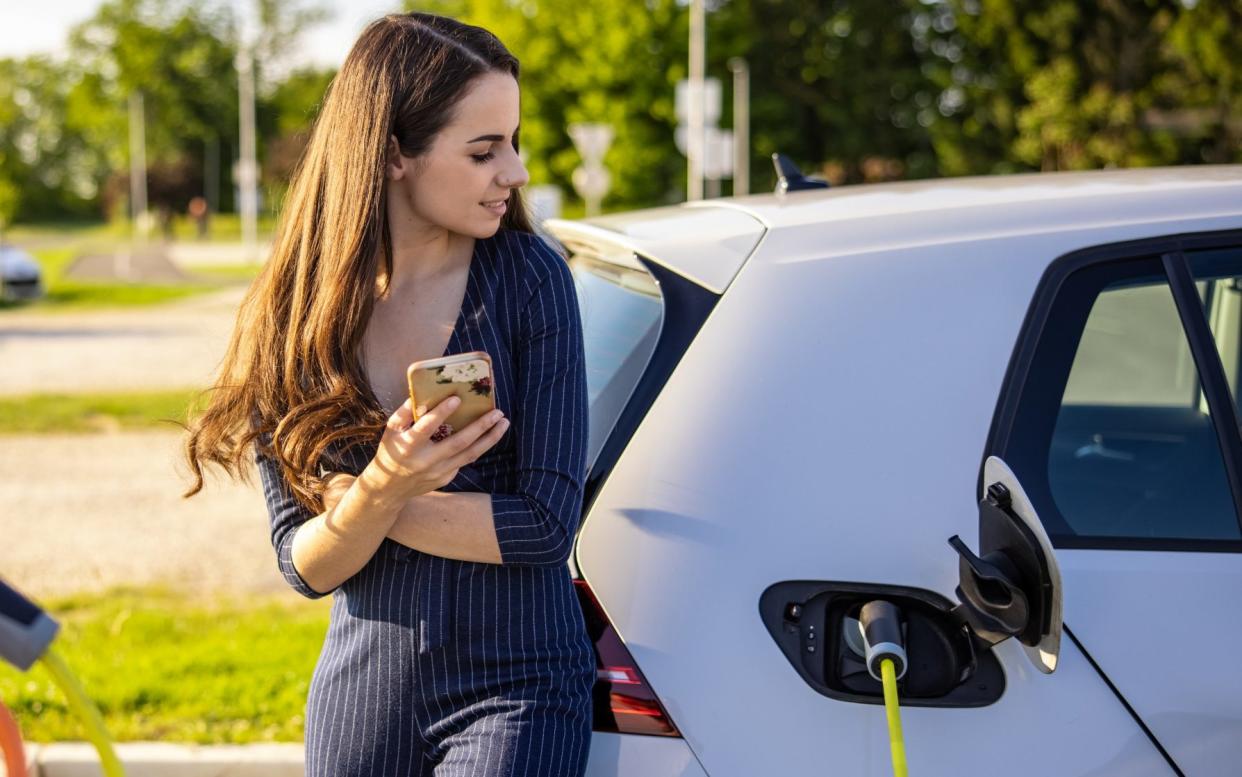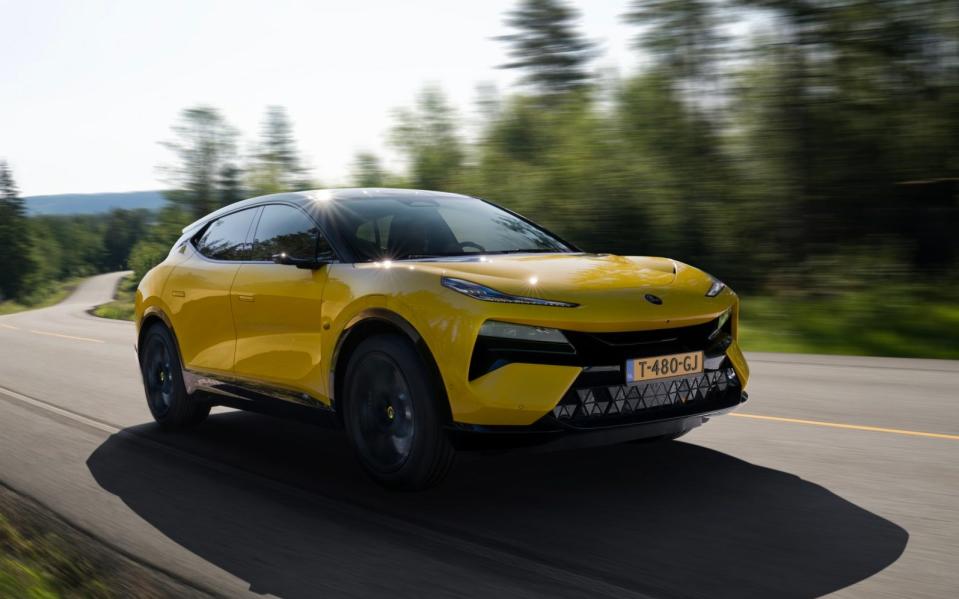Five things women really want (from an EV)

Women are increasingly driving car purchases, but while electric vehicles (EVs) are “a far easier, more accessible type of car”, according to Auto Trader’s Erin Baker, it seems the message is not getting through. According to those surveyed by the online car marketplace, 60 per cent of women are still concerned they don’t have enough knowledge to purchase an EV.
Older women in particular were more nervous than those under 40. “They’re more confident around financing than younger women, but they don’t read car magazines or watch car content on YouTube, so they aren’t privy to the same level of advice and information about switching to electric,” Baker adds.
Some brands are really investing in the charm offensive, such as Genesis – the luxury arm of Hyundai . Their methods include female-friendly sales tactics such as home test drives (within 30 miles of a showroom) and salespeople who come from luxury lifestyle brands, like Tiffany’s.
“We are definitely noticing that women are more involved in the car purchasing experience than they have ever been before,” says Angie Ayscough, Genesis London’s studio manager. “I think women feel more confident and relaxed talking to women salespeople and it’s then that the conversation flows.”
For those who have already bought an EV, 80 per cent say they would buy another. Surprising reported benefits included enjoying how quiet they are to drive, as well as the ease of not having to visit a fuel station (one respondent reported losing weight after not regularly picking up junk food at the till). “But we’ve still got an education piece to do,” Baker says, “because we know that once women try EVs, and it fits their lifestyle, they are fans.”

Gender differences
But what do women really want from an EV? Ayscough says “it’s fascinating to see the difference between men and women when it comes to the purchase, especially in an electric vehicle. The women are more interested in how the car makes them feel”.
She says that along with the luxury elements that the Genesis GV60 provides, including Napa leather, massage seats and the crystal “sphere” (the gear selector; a work of art), “they want to experience the car, they want to sit in it, see the boot space and understand the practicalities of how it’ll fit into their lives.
“The men are more focused on the battery size, the range, the speed, the motor placement and whether it is two- or four-wheel drive.”
Affordability
Regardless of gender, one of the main concerns remains price. While a new generation of smaller EVs, such as the Dacia Spring and Citroen e-C3, come in under £30,000, budget-conscious buyers need to consider the burgeoning used market.
Models that have been around since the last decade, in one form or another, include the Renault Zoe, Nissan Leaf, Tesla Model S and BMW i3. “There are plenty of examples where the three-year-old electric car is cheaper than its three-year-old petrol equivalent,” Baker adds.
Another option is a subscription, with brands including Hyundai, Nissan, and Jaguar Land Rover offering them. (Auto Trader’s survey found that of those women who are “ready” to buy an EV were more likely to already have subscription services to other platforms, from Netflix to home delivery services). Baker says it’s a “good, but not cheap, way to try an EV for a few months”.

Know how to operate it
Any new technology comes with a concern that it’s fiddly. EVs take some mental recalibration from petrol or diesel cars – they need charging, usually involving a high-tech touchscreen that acts as the car’s central control hub. However, Baker says: “There are fewer moving parts to go wrong or need servicing, no gears and one plug,” meaning they are, overall, easier to operate and repair.
From a technical point of view, charging is easy and all EVs charge in the same way. Nearly all of them use the same type of plug (15 years ago, it was often a bewildering experience). But that leads to another key anxiety for would-be EV buyers...
Range anxiety – or confidence
All drivers need to know that they can get to their destination without running out of electrical charge. The average range has improved markedly in recent years and is now estimated to be around 300 miles, with (often more expensive) models including the Mercedes-Benz EQS promising 500 miles on a single charge – around five hours of driving.
Baker says that driving long distances requires a different mindset. You need to plan stops – a nice lunch at a pub that has a charger, such as Heckfield Place in Hampshire, or a selected National Trust property (check its website for properties with chargers) – or a route with a fast-speed charger on the way using Zap Map and schedule a comfort break.

The UK now has nearly 60,000 charging stations, according to Zap Map, with Tesla opening up some of its “supercharging” points, which can add up to 172 miles with a 15 minute charge.
As ever, the problem is that geographical spread is not equal: places including Milton Keynes and Coventry have good charging coverage, with Newcastle and Aldershot being poorer, according to data from energy company Boxt. Planning ahead is key.
For shorter daily journeys, she says, it’s a case of remembering to plug in each night – exactly as you would do with your phone.
A car that’s positive for the planet
Environmental concerns are very important to women, Auto Trader’s research found. There are concerns around where batteries are made and their chemical composition, as well as the environmental maths of buying a new EV over a used petrol car.
Nevertheless, Baker says they are still the better environmental choice. “Over the entire lifecycle of a car [from manufacture to end of life] EVs emit a third of the carbon of a petrol model, while the narrative for petrol cars is static – oil is drilled for fossil fuels, the engine burns hydrocarbons, engine dies, is scrapped, end of story.
The story for EVs is only getting better every day: more electricity coming from renewables all the time, less rare earth metals used to make batteries all the time, better repair and recycling of batteries all the time, more innovative uses of batteries as storage solutions after their life is over in a car.
The critical message is that EVs may not be perfect yet, but they are a darn sight better than fossil-fuel cars.”

Just as sustainable fashion is becoming more popular, so too are recycled and environmentally friendly details of EVs an attractive added extra. The Hyundai Ioniq 6, for example, has bio paint on its doors made from polyurethane covering derived from vegetable oils, as well as carpet made from recycled Econyl; the Lotus Eletre S, meanwhile, uses a premium textile made from waste fabric from the fashion industry, while the BYD Seal has a cobalt-free battery (cobalt has issues around its supply; more than 70 per cent comes from mines in the Congo and is difficult to extract and process).
Making the leap
Baker says that it is crucial to make sure an EV fits into your lifestyle: “Electric cars aren’t for everyone; those who regularly drive long distances, for example.” But of those who consider themselves “ready” to purchase an EV as their next car, 78 per cent drive between 21 and 58 miles daily, 81 per cent believe electric cars are better for the environment and 82 per cent believe they are the future.
“There is a huge variety of EVs available now, each with their own unique characteristics,” says Baker. “I like mine for nipping around town for those daily short trips. It has slotted easily into my life.”

 Yahoo News
Yahoo News 
